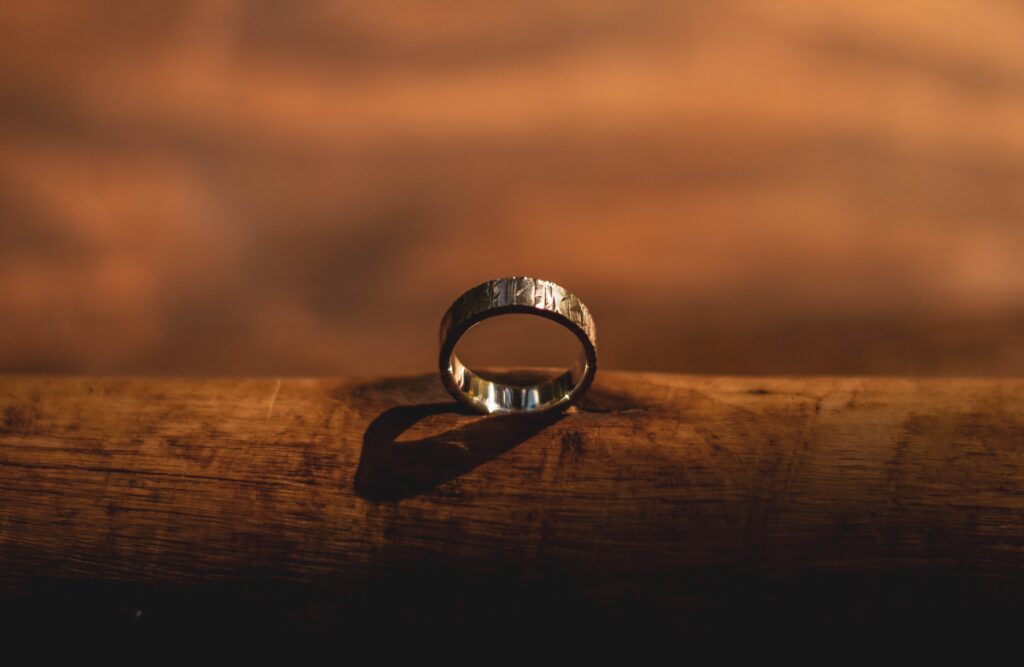Kinyan is the central act of the wedding ceremony. It is also the part of the ceremony most promlematic for same-sex (or egalitarian) couples, as it involves one partner acquiring the second for the price of the ring. An exchange of rings is problematic as it is commonly perceived as undoing any transfer of value and thus voiding the acquisition.
Rabbi Eyal Levinson, in his book Same-Sex Kidushin v-Nisu’in, proposes a different method of achieving kinyan based on writings in the Tanakh. Levinson finds numerous instances where koneh (the verb form of the noun kinyan) is used to mean things other than acquisition through purchase. The most well known case occurs in Genesis (14:19) as Melchizedek, king of Salem, uses the word koneh to describe HaShem as creator of heaven and earth. For us, the most interesting usage appears in Proverbs 4:5–7, where koneh describes the acquisition of wisdom through a process of acceptance. It is similarly used in Proverbs 16:16 and 23:23.
This notion of “kinyan through acceptance” provides an ideal model for same-sex couples, as it fulfills the requirements for marriage outlined in the Mishneh, while allowing each partner to acquire the other without voiding the kinyan. Indeed, “kinyan through acceptance” is about accepting the other person as he is, with all his strengths and shortcomings—and it is an act that is only strengthened when reciprocated.
Exchange of Vows
[Groom A presents a ring to confirm, before witnesses, that the ring belongs to him and asks the witnesses to assess that the ring is worth at least one perutah. With his right hand, Groom A takes the ring he purchased and places it on Groom B’s right index finger declaring:]
הֲרֵי אֲנִי מִתְקַדֵּשׁ לְךָ בְּטַבַּעַת זוּ כְּדַת מֹשֶׁה וְיִשְׂרָאֵל
הי יִהְיֶה בֵּינִי וּבֵינְךָ וּבֵין זַרְעִי וּבֵין זַרְעֲךָ עַד עוֹלָם
Harey ani mitkadesh l’kha b’taba’at zu k’dat Moshe v’Yisrael
Hashem yih’yeh beyni u’beynkha u’ven zari u’ven zarakha ad olam
|
[Vows repeat in reverse]
For a complete version of the Traditional Same-Sex Jewish Wedding by Orrin Wolpert, click here.











